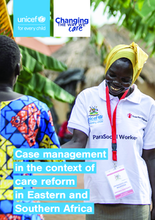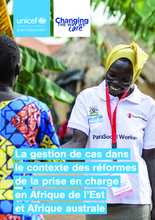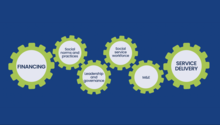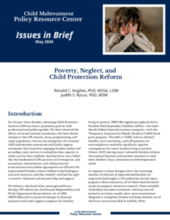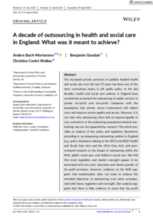Displaying 91 - 100 of 1025
Listen to transition support experts David Musa and Yatta Palmer of the Child Reintegration Centre (CRC) explain how transition is getting more children home to family and learn about the challenges, successes, and the powerful role of the CRC in revolutionizing child welfare in Sierra Leone.
This paper explores the role of case management in the context of care reforms. It offers cross-cutting principles of good practice, essential steps, and describes critical factors involved in effective case management practices. Drawing on literature from the Eastern and Southern Africa region and beyond, the paper aims to provide overarching guidance to professionals and stakeholders involved in children’s care, welfare, and protection.
Ce document explore le rôle de la gestion de cas dans le contexte des réformes de la prise en charge. Il propose des principes transversaux de bonnes pratiques, des étapes essentielles et décrit les facteurs critiques impliqués dans des pratiques efficaces de gestion de cas. S’appuyant sur la littérature de la région, ce document vise à fournir une orientation générale aux professionnels et aux acteurs impliqués dans la prise en charge, le bien-être et la protection de l’enfance. L’annexe fournit des détails sur les ressources en matière de gestion de cas dans la région de l’Afrique de l’Est et australe ainsi qu’au-delà.
Este artigo explora o papel da avaliação e gestão de caso no contexto das reformas do sistema de cuidados alternativos. Oferece princípios transversais de boas práticas, as etapas essenciais e descreve os fatores críticos envolvidos nas práticas de avaliação e gestão de caso eficazes. Baseando-se na literatura da região, o artigo visa fornecer uma orientação abrangente aos profissionais e às partes interessadas envolvidas nos cuidados, no bem-estar e na proteção das crianças. O anexo fornece detalhes dos recursos de avaliação e gestão de caso da região da África Oriental e Austral e também em outros lugares.
Through this study, the researcher has attempted to view the Child Protection System from the lived experiences of 10 children who are/have been part of the Child Protection System in Delhi, India.
2024 Annual Meeting for Child Protection in Humanitarian Action.
The Moldova Ministry of Labor and Social Protection, in cooperation with CTWWC Moldova and local partner CCF Moldova, organized an international conference on March 21, 2024. More than 100 participants, representing the wide array of care reform actors and decision makers in the central and local government, NGOs, academia and international experts, reviewed findings of the Bucharest Early Intervention Project and national research conducted in 2023 on the potential for a moratorium on placing children 0-6 in institutional care.
The Care Reform Roadmap (2024-2028) lays out the strategic actions for caring for vulnerable children in Ghana, led by the Ministry of Gender, Children, and Social Protection.
The purpose of this document is to explore why and how Child Protective Services (CPS) evolved from a highly specialized system designed to investigate and respond to allegations of serious child abuse and neglect to a system expected to provide social services and material supports to impoverished families unable to meet their children’s basic needs.
This article provides an analysis of key policy and regulatory documents preceding or accompanying outsourcing policies in England (e.g., policy document relating to the 2012 and 2022 Health and Social Care Acts and the 2014 Care Act), and peer reviewed research on the impact of outsourcing within the NHS, adult's social care, and children's social care.


